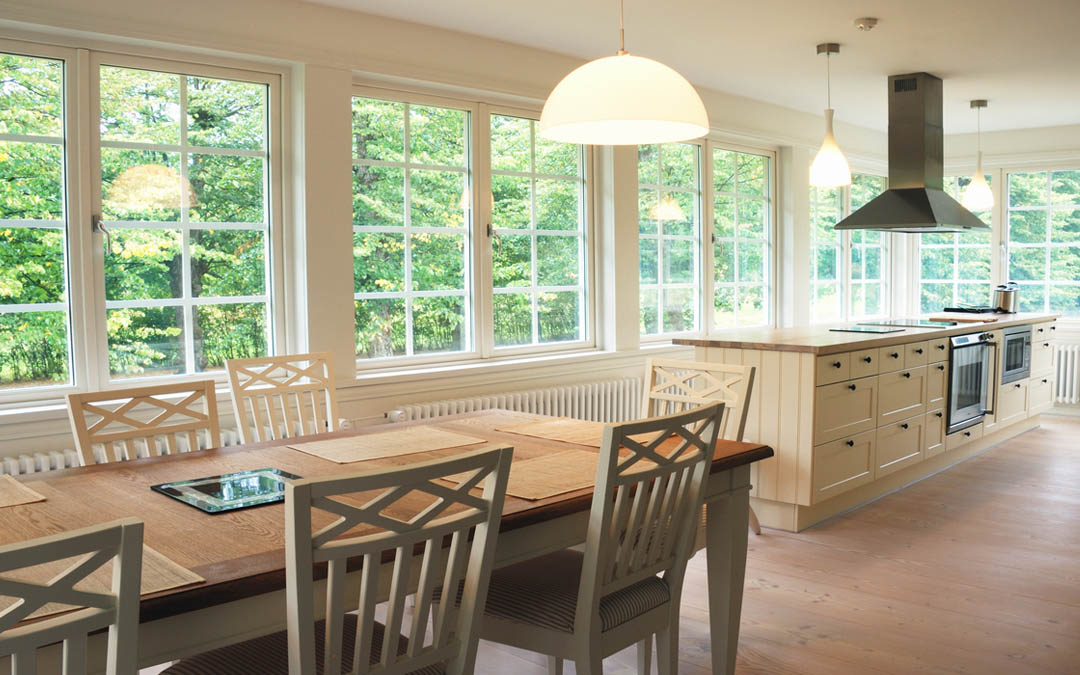Whether it’s the effects of global warming, a desire for better home energy efficiency, or a way to improve curb appeal, more people than ever are tinting their homes’ windows. Statistics from Grand View Research back that up. They report that in 2019, the global window film market was valued at $9.83 billion — and it’s projected to be worth as much as $14.64 billion by 2027.

Given a Houston climate that ranges from pleasant to downright blazing, maybe you’re one of those about to join the window tinting movement. But it’s important to know that window film isn’t a one-size-fits-all situation and there’s a lot to consider before you select a film or an installer. So before you make the call, here are five things you must know.
1. Different Window Film Types Come With Different Benefits
There are three general types of window film, and each is installed for a specific reason.
- Solar. Solar window tinting is moderately thick and can absorb up to 99% of UV rays from the sun. It also regulates indoor temperature, reduces glare, minimizes the fading of your furnishings, and boosts indoor comfort.
- Security. The thickest of the three film types, security film is proven effective in protecting your home against storm damage and in deterring burglars. Its purpose is mainly protective, as most clear or silver security films are ineffective at absorbing or reflecting heat.
- Decorative. Decorative film is meant to add beauty or privacy to a room. The thinnest of the three types, it’s sold as a clear or colored film that can come in a variety of etched patterns, designs, or frosted opaque. Want a stained-glass window look? No problem! Decorative film can handle that, too.
2. Not All Window Film Types Work on All Window Glass
Decorative or security films that block heat don’t put much thermal stress on windows and can be applied to all major glass types. But certain glasses have a higher absorption rate that can increase their thermal stress. So the International Window Film Association recommends avoiding solar film on some window glasses. Check with your installer or with the manufacturer’s guidelines to make sure your selected film is compatible.
3. Installing Window Films May Void the Window Warranty
It’s important to check the warranty on your windows before applying tint. Some manufacturers will void your warranty if you apply window film. Certain types of window tints, notably solar or heavier films, can cause the window to heat up and expand, increasing the risk of cracking or breaking. This is particularly true with double-pane windows. Given this risk, you’ll also want to check with your installer about the warranty the film manufacturer offers in case of damage.
4. Older Windows Need It Most
Older windows typically lack low-emissivity (low-E) coatings that block out heat. As such, older windows show the most dramatic energy-saving improvements from window tinting. More recent windows typically come with low-E coatings for higher energy efficiency, so applying window film will not dramatically affect the level of energy efficiency and comfort.
5. Find a Qualified Provider
Another important window film consideration is finding a qualified window film expert to clarify exactly what will work for you, your budget, and your windows. And for 30 years, homeowners in the North Houston area have turned to Fine Line Glass Tinting to get the job done.
Family owned and operated, we’re one of Houston’s top providers of residential and commercial window films, and we can help you find the best sun-blocking window film for your needs and budget. Our expert installers boast a combined 100 years of experience, so you can rest assured your job will be completed in a neat and skillful manner that upholds our commitment to excellence and professionalism.
Contact us today! An experienced staff member will be happy to schedule a complimentary in-person evaluation.
